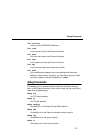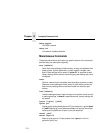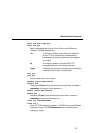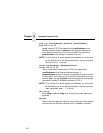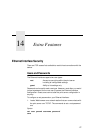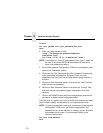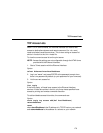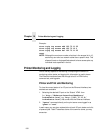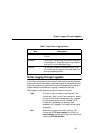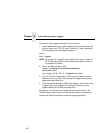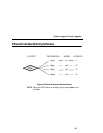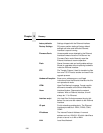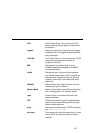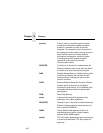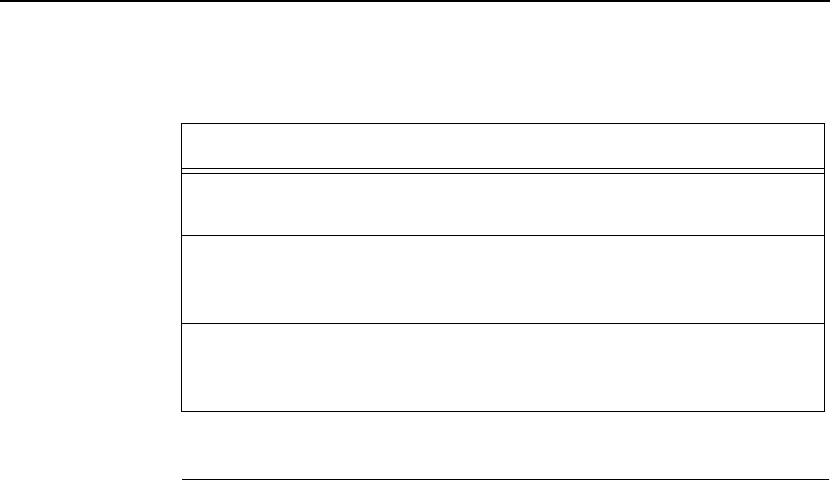
Printer Logging Through Logpaths
181
Printer Logging Through Logpaths
In the Ethernet Interface product manual, destinations are described as
logical queues with associated models and logpaths. Models determine if
any extra processing is needed with the print jobs passing through and
logpaths determine whether any logging is needed for each job.
Each logpath on the Ethernet Interface consists of two parts:
Type The type of log information to be captured. The
choices are “
job” for job ID and username, “user”
for user ID (and three messages per job), “
pgcnt”
for total pages printed in a job, “
cksum” for file
checksums, “
printer” for special printer
feedback, and “
ioport” for parallel printer status
messages.
Port Where this log information will be sent to. The
choices are a TCP port number (e.g. 2000), an
email address (including an alias), or a central host
running a SYSLOG daemon.
Table 7. Key Printer Logging Terms
Term Description
“idle” There is no job queued for the Ethernet Interface
I/O port.
“blocked” The printer is not allowing the Ethernet Interface
to send data to it. Check that there is not a printer
error and it is online and ready to go.
“waiting” The Ethernet Interface knows about a print job
but is waiting for the host to send more data or to
send an expected packet.



